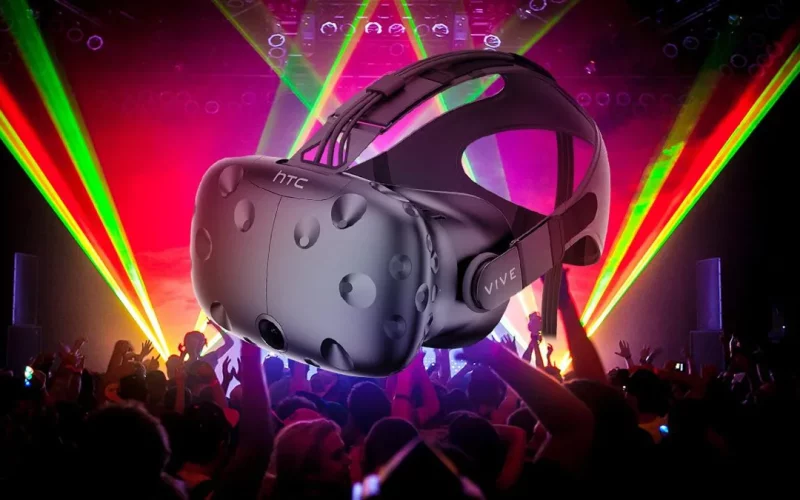Introduction
The landscape of live entertainment has undergone significant transformations over the past few decades, with technology playing a pivotal role in shaping new experiences. One of the most groundbreaking developments in recent years is the advent of virtual concerts and events. As the world becomes increasingly digital, the future of live entertainment is poised to be more immersive, accessible, and innovative than ever before. This article explores the evolution, current state, and future prospects of virtual live entertainment.
The Evolution of Live Entertainment

-
Early Beginnings
Live entertainment has been a cornerstone of human culture for centuries, ranging from ancient theatrical performances to grand musical concerts. Traditionally, these events required physical attendance, creating a communal experience that was both engaging and memorable.
-
Technological Advancements
The introduction of radio and television in the 20th century marked the first major shift in live entertainment, allowing audiences to experience performances from the comfort of their homes. However, these mediums still lacked the interactive and immersive elements that define live experiences.
-
The Digital Age
The advent of the internet and digital technology in the late 20th and early 21st centuries revolutionized live entertainment. Streaming services, social media platforms, and advanced audiovisual technologies have made it possible to broadcast live events to global audiences in real time.
The Rise of Virtual Concerts and Events

-
What Are Virtual Concerts?
Virtual concerts are live musical performances that are streamed over the internet, allowing audiences to experience the event remotely. These concerts can be prerecorded or live streamed and often incorporate interactive elements such as chat rooms, virtual meet and greets, and augmented reality (AR) features.
-
Early Examples
The concept of virtual concerts is not entirely new. Early examples include live streamed performances on platforms like YouTube and Facebook. However, these early iterations were often limited in terms of interactivity and immersive experience.
-
The Impact of COVID19
The COVID19 pandemic accelerated the adoption of virtual concerts and events. With social distancing measures and lockdowns in place, artists and event organizers turned to virtual platforms to reach their audiences. This period saw a surge in innovative virtual events, from music festivals to theatrical performances.
Current State of Virtual Live Entertainment
-
Platforms and Technologies
Several platforms have emerged as leaders in the virtual live entertainment space. These include:
- YouTube Live: Known for its ease of use and massive audience reach.
Twitch: Popular among gamers, Twitch has expanded its offerings to include virtual concerts and events. - Zoom: Initially a video conferencing tool, Zoom has been adapted for virtual events and concerts.
- VR Platforms: Virtual reality platforms like Oculus Venues and Wave offer fully immersive concert experiences.
-
Interactive Features
Modern virtual concerts and events often include a range of interactive features to enhance audience engagement. These may include:
- Live Chat: Allows attendees to interact with each other and the performers in real time.
- Virtual MeetandGreets: Offers fans the opportunity to interact with artists in a virtual setting.
- Augmented Reality (AR): Enhances the visual experience by overlaying digital elements onto the real world.
- Virtual Merchandise: Allows fans to purchase digital goods, such as virtual concert tickets, exclusive content, and digital collectibles.
-
Monetization Strategies
Artists and event organizers have developed various monetization strategies for virtual concerts and events. These include:
- Pay Per View: Charging a fee for access to the live stream.
- Subscriptions: Offering monthly or yearly subscriptions for exclusive content.
- Sponsorships: Partnering with brands to sponsor events.
- Virtual Merchandise Sales: Selling digital goods and collectibles.
Benefits of Virtual Live Entertainment

-
Accessibility
One of the most significant advantages of virtual concerts and events is accessibility. Fans from around the world can attend events without the need for travel, making live entertainment more inclusive.
-
Cost Effectiveness
Virtual events are often more cost effective for both organizers and attendees. There are no venue rental costs, and fans save on travel and accommodation expenses.
-
Environmental Impact
Virtual concerts have a lower environmental footprint compared to traditional live events. Reduced travel and resource consumption contribute to a more sustainable entertainment industry.
-
Flexibility
Virtual events offer greater flexibility in terms of scheduling and content delivery. Performers can reach global audiences across different time zones, and content can be made available on demand.
Challenges and Limitations

-
Technical Issues
Despite advancements in technology, virtual concerts and events are not without challenges. Technical issues such as streaming quality, latency, and platform stability can impact the overall experience.
-
Lack of Physical Presence
One of the primary drawbacks of virtual events is the lack of physical presence. The communal atmosphere and energy of a live audience are difficult to replicate in a virtual setting.
-
Monetization Challenges
While there are various monetization strategies, generating revenue from virtual events can be challenging. Convincing audiences to pay for virtual experiences requires compelling content and unique value propositions.
The Future of Virtual Live Entertainment

-
Technological Innovations
The future of virtual live entertainment will be shaped by ongoing technological innovations. Emerging technologies such as 5G, augmented reality (AR), virtual reality (VR), and artificial intelligence (AI) will enhance the quality and interactivity of virtual events.
-
Hybrid Events
Hybrid events, which combine physical and virtual elements, are likely to become more prevalent. These events offer the best of both worlds, allowing in person attendees to experience the live atmosphere while providing virtual access to a global audience.
-
Personalized Experiences
Advancements in AI and data analytics will enable more personalized experiences for virtual event attendees. Customized content, targeted recommendations, and interactive features tailored to individual preferences will enhance audience engagement.
-
New Business Models
As the virtual live entertainment industry evolves, new business models will emerge. Subscription based services, virtual reality concert venues, and block chain based ticketing systems are just a few examples of potential future developments.
Conclusion
The future of live entertainment is undoubtedly intertwined with the virtual realm. Virtual concerts and events offer numerous benefits, including accessibility, cost effectiveness, and environmental sustainability. While challenges remain, ongoing technological advancements and innovative business models will continue to drive the evolution of virtual live entertainment. As the industry adapts and grows, audiences can look forward to increasingly immersive, interactive, and personalized experiences that redefine the way we engage with live performances.
In this rapidly changing landscape, one thing is certain: the future of live entertainment is virtual, and the possibilities are limitless.












